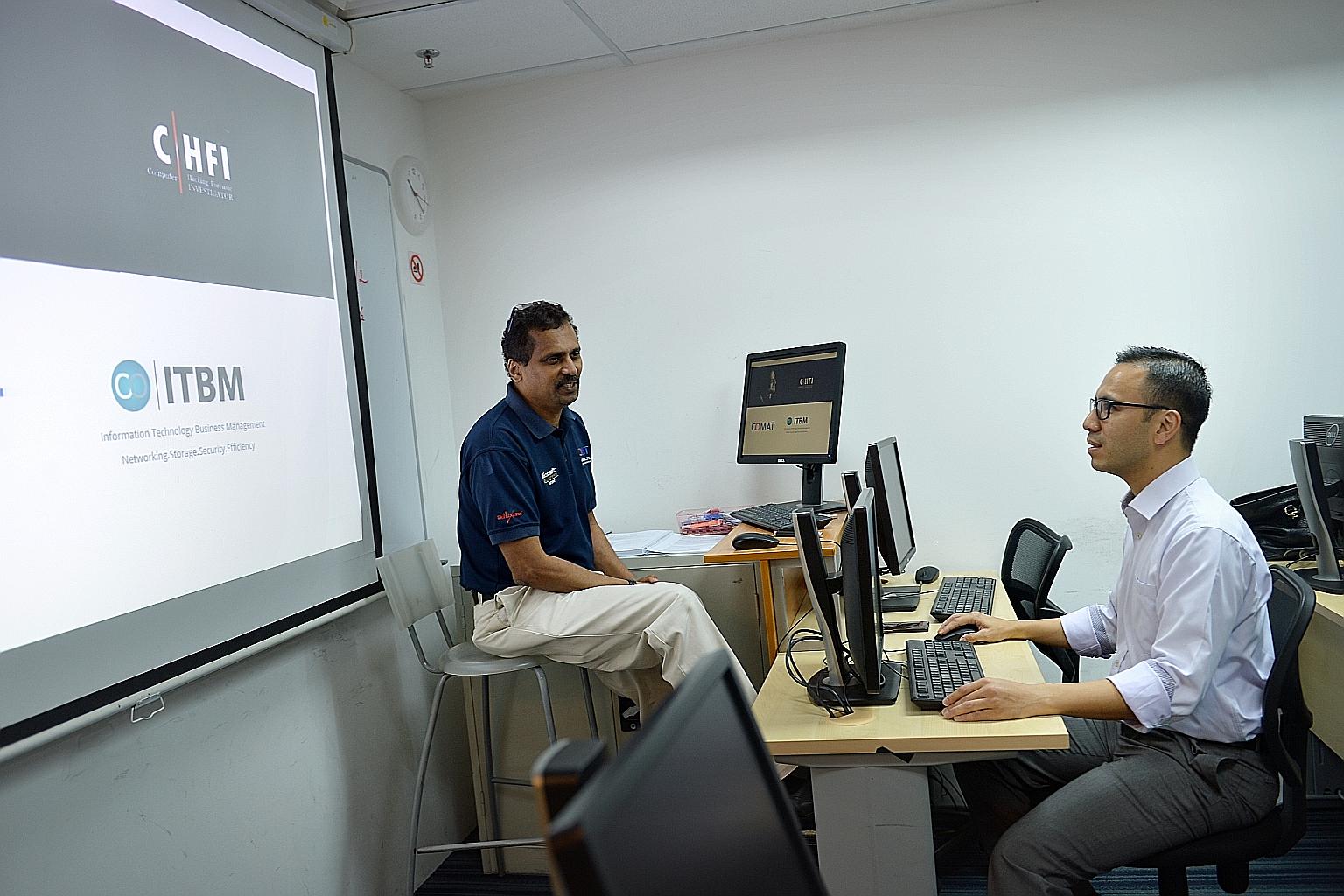Skills upgrading
Staying ahead in the fast-paced IT sector
Industry's rapid changes mean learning is a must for those who want to remain relevant
Sign up now: Get ST's newsletters delivered to your inbox

IT trainer Muthu Krishnan (at far left) and student Mohamad Ideal Ismail, who has been in IT for 15 years, both upgrade themselves constantly to keep abreast of industry trends.
ST PHOTO: ALPHONSUS CHERN
When IT executive Mohamad Ideal Ismail, 37, graduated from his part-time degree course in computing in 2009, most of what he learnt about systems and applications was already outdated.
So it has been a race since to upgrade his computer skills and stay on top of industry trends, he said.
Between last April and October, he completed three courses at the Comat school near Tanjong Pagar, including the latest one on cyber forensics.
In a course under the National Infocomm Competency Framework (NICF), called Computer Hacking Forensic Investigator, he learnt how to recover deleted data, handle digital forensic evidence and capture logs.
Two months ago, he also received a Specialist Diploma in Information Security from Nanyang Polytechnic (NYP), which he took a year to complete. The course covered modules such as data, applications and network security.
Singaporeans can use their $500 SkillsFuture Credit to pay for the NICF course. It would cost between $177.50 and $802.50, depending on the level of government subsidies, which are given to citizens and older workers, among others.
They can also use the credit to get modular certificates at NYP. The fees are between $210 and $350, before subsidies.
Mr Ideal, who has been in IT for 15 years, said the industry changes rapidly, making it necessary for him to keep upgrading himself.
His job scope widened to include cyber security in the past five years, making it more urgent for him to stay on top of the latest threats.
"That's why we have to keep learning new things," he added, noting that the courses he attended included both theoretical and practical know-how. It helped that the courses were conducted on weekends and did not disrupt his work. For example, for his most recent course at Comat, he attended classes on five consecutive Saturdays.
But it would have been difficult to take the class without industry experience. He said: "The terms we use... would be alien to someone not in the industry."
Senior consultant Muthu Krishnan, 57, who has taught at Comat for 20 years, said the forensics course assumes that students come in with industry experience. He said: "They would be lost otherwise."
Despite Mr Krishnan's experience, he is not spared the pressure of constantly having to upgrade himself. He scours hacking websites, such as hackernews.com, and the United States' National Vulnerability Database daily to keep his classes relevant.
"The curriculum is modelled after those in other countries which are on the front lines fighting hackers," he said.


